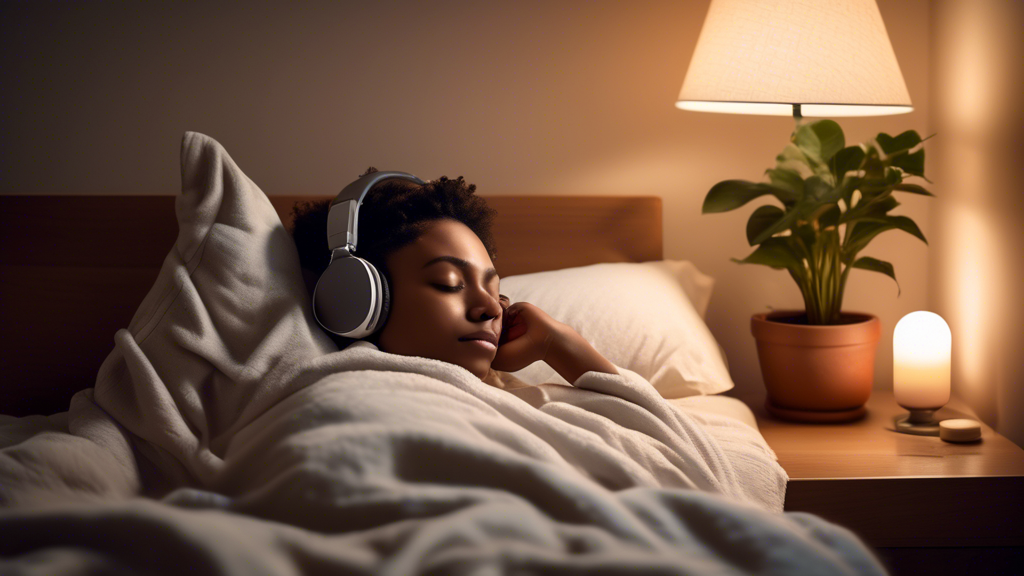Enhancing Sleep with Mindfulness Practices for Men
In today’s fast-paced world, men often face unique challenges that disrupt their sleep patterns, leading to restless nights and groggy mornings. However, there is a powerful and natural approach that can help men improve their sleep quality: mindfulness practices. By understanding the connection between mindfulness and sleep, and incorporating specific techniques into daily routines, men can experience transformative benefits. This article delves into the science-backed advantages of mindfulness for better sleep and offers practical strategies that men can easily weave into their busy lives. From guided meditation and breathing exercises to progressive muscle relaxation and visualization methods, readers will discover effective tools to enhance their sleep. Furthermore, the article provides actionable tips for integrating mindfulness into daily activities, establishing evening rituals, and shares success stories from men who have successfully improved their sleep through mindfulness.
Understanding the Connection Between Mindfulness and Sleep in Men
Mindfulness practices have emerged as a powerful tool for improving overall well-being, including the quality of sleep. Mindfulness involves being fully present in the moment, accepting it without judgment. This practice can shift the mind away from stress, anxiety, and other negative emotions that commonly interfere with sleep.
Men face a unique set of sleep challenges that mindfulness can help address. These challenges include high-stress levels from demanding jobs, societal pressures, and lifestyle factors such as physical fitness routines or late-night social engagements. Moreover, hormonal fluctuations, specifically the reduction of testosterone with age, can contribute to sleep disruptions, making it difficult for men to achieve restful sleep.
The benefits of mindfulness practices extend to various aspects of life, including emotional regulation, stress reduction, and overall mental clarity. When it comes to sleep, mindfulness can create a mental environment conducive to relaxation and tranquility, essential for falling and staying asleep. Practicing mindfulness encourages relaxation of the body and mind, making transitioning into sleep smoother and less interrupted.
Scientific evidence strongly supports the use of mindfulness for enhancing sleep quality. Research from the Journal of the American Medical Association (JAMA) Internal Medicine highlights that mindfulness meditation can significantly improve sleep among chronic insomnia sufferers. In one study, participants who engaged in mindfulness practices reported better sleep quality, reduced sleep disturbances, and less daytime impairment compared to those who participated in other sleep improvement programs.
Another compelling study conducted by the National Center for Complementary and Integrative Health found that mindfulness meditation can positively impact the brain’s sleep-regulating mechanisms. The practice reduces activity in the brain’s default mode network, which often becomes overactive during periods of stress and anxiety, leading to difficulty falling asleep. By calming this network, mindfulness helps create the mental stillness required for restful sleep.
The relationship between mindfulness and the brain’s physiology further underscores its effectiveness in improving sleep. Harvard Medical School research suggests that mindfulness practices increase the production of melatonin, a hormone responsible for regulating the sleep-wake cycle. Higher melatonin levels can make it easier to fall asleep and stay asleep through the night.
Men experiencing sleep disturbances due to psychological factors, such as work-related stress and anxiety, can particularly benefit from mindfulness. Men often prefer practical, efficient solutions, and mindfulness fits this need well. Unlike other sleep interventions that might require significant lifestyle changes, mindfulness can be seamlessly integrated into daily routines.
Moreover, mindfulness practices do not require extensive time commitments or specialized training, making them accessible to most men. Techniques like mindful breathing, body scan meditations, and guided visualizations can be practiced for as little as 5-10 minutes daily, yielding noticeable improvements in sleep quality over time.
In summary, understanding the connection between mindfulness and sleep is crucial, particularly for men facing unique sleep challenges. Scientific studies provide overwhelming support for the efficacy of mindfulness in improving sleep quality. Incorporating mindfulness into daily routines can be a practical and effective strategy for enhancing sleep, leading to better overall health and well-being.

Effective Mindfulness Techniques for Better Sleep
Guided Meditation and Its Impact on Sleep
Guided meditation involves listening to a narrator guide you through a session aimed at calming the mind and relaxing the body. This practice has proven to be highly effective for enhancing sleep quality. By focusing on serene imagery or a soothing voice, men can distance themselves from daily stresses and worries. Several studies indicate that guided meditation can significantly reduce the time it takes to fall asleep and improve overall sleep duration. It’s a straightforward method: simply find a quiet space, choose a guided meditation session from a trusted source, and allow yourself to be led into a state of deep relaxation.
Breathing Exercises Tailored for Relaxation and Sleep Induction
Breathing exercises can play a crucial role in preparing your body for sleep. Techniques like the 4-7-8 method, where you inhale for four seconds, hold your breath for seven seconds, and exhale for eight seconds, can reduce anxiety and promote a sense of calm. Another effective breathing exercise is diaphragmatic breathing, which involves deep, slow breaths that engage the diaphragm rather than the chest. This practice has been shown to activate the parasympathetic nervous system, which is responsible for calming the body and preparing it for rest. By consistently incorporating these breathing techniques into your nightly routine, you can lower stress levels and create an internal environment conducive to sleep.
Progressive Muscle Relaxation and Visualization Methods
Progressive muscle relaxation (PMR) is another powerful technique for improving sleep quality. This practice involves tensing and then gradually relaxing different muscle groups, starting from your toes and working your way up to your head. PMR helps release physical tension and fosters a state of deep relaxation, which is essential for falling asleep and staying asleep. To practice PMR, find a comfortable position, preferably lying down. Tense each muscle group for about five seconds and then relax for 30 seconds, moving systematically through your body.
Visualization techniques complement PMR by engaging the mind in positive imagery. By imagining a peaceful scene, such as a serene beach or a quiet forest, you can shift your focus away from stress and anxiety, making it easier to drift into sleep. Visualization, combined with PMR, can significantly enhance your ability to fall asleep quickly and enjoy a more restful night.
By incorporating these mindfulness techniques—guided meditation, targeted breathing exercises, progressive muscle relaxation, and visualization—men can create an effective strategy for improving sleep quality. These practices not only address the physical aspects of sleep but also tackle the mental barriers that often prevent restful slumber.

Integrating Mindfulness into Daily Routines for Sustained Sleep Benefits
Incorporating mindfulness into your daily routine is essential for experiencing sustained sleep benefits. For men with busy lifestyles, finding practical and manageable ways to integrate mindfulness can significantly enhance sleep quality.
Practical Tips for Incorporating Mindfulness into a Busy Lifestyle
Even with a packed schedule, it’s possible to weave mindfulness practices into your day. Here are some tips to help you get started:
- Start Small: Begin with just a few minutes of mindfulness each day. Simple practices like focused breathing or brief moments of meditation can be a good starting point.
- Schedule Mindfulness: Just like any important task, schedule mindfulness breaks into your day. Whether it’s a quick session in the morning, during lunch, or before bed, having a set time can help ensure consistency.
- Mindful Transitions: Use transitional moments throughout your day to practice mindfulness. For instance, take a few deep breaths before starting a meeting or while waiting in line.
- Mindful Eating: Pay attention to your meals without distractions. Notice the taste, texture, and smell of your food, which can enhance your mindfulness practice.
- Use Technology Wisely: Leverage mindfulness apps that provide guided sessions and reminders to keep you on track.
Evening Rituals to Enhance Sleep Readiness
Creating evening rituals that incorporate mindfulness can signal to your body that it’s time to prepare for sleep. Here are some effective strategies:
- Mindful Wind-Down: Dedicate the last hour of your day to winding down. Engage in calming activities such as reading, listening to soothing music, or practicing gentle yoga.
- Technology Detox: Minimize exposure to screens at least an hour before bedtime. The blue light emitted by phones and computers can interfere with your body’s natural sleep signals.
- Gratitude Journaling: Spend a few minutes writing down things you are grateful for. This simple practice can shift your mind to a positive state, reducing stress and promoting relaxation.
- Relaxing Bath or Shower: A warm bath or shower can help relax your muscles and create a sense of calm, making it easier to transition into sleep.
- Guided Meditation for Sleep: Use mindfulness apps or online resources to follow a guided meditation specifically designed to promote sleep. These sessions often focus on body scanning, deep breathing, and visualization techniques.
Success Stories and Testimonials
Hearing from other men who have successfully improved their sleep through mindfulness can be both inspiring and motivating. Here are a few testimonials:
John, 35: As a father and an entrepreneur, I often found myself stressed and sleep-deprived. Incorporating mindfulness into my daily routine has been a game-changer. I start my mornings with a 10-minute meditation session and end my evenings with gratitude journaling. My sleep quality has improved drastically, and I feel more balanced.
Mike, 42: I was skeptical about mindfulness at first, but after struggling with insomnia, I was willing to try anything. Guided meditations before bed have become a part of my nightly ritual. Not only do I fall asleep faster, but I also wake up feeling more refreshed.
David, 29: Balancing a demanding job and social life took a toll on my sleep. Integrating mindfulness practices like progressive muscle relaxation and mindful eating into my routine has made a difference. I now look forward to my evening wind-down period, and my overall well-being has improved.
These testimonials highlight the real, tangible benefits that men experience when they commit to incorporating mindfulness into their daily lives. By following practical tips and establishing evening rituals, you can achieve sustained sleep benefits and improve your overall quality of life.
In conclusion, the integration of mindfulness practices into daily routines can significantly enhance sleep quality for men, addressing many of the specific challenges they face. By understanding the profound connection between mindfulness and sleep, men can harness the benefits of guided meditation, breathing exercises, and progressive muscle relaxation to create a more relaxed and conducive environment for rest. Scientific evidence strongly supports these techniques, demonstrating their effectiveness in reducing stress and promoting deeper, more restorative sleep.
Effective mindfulness techniques, such as guided meditation, have shown to positively impact sleep by calming the mind and reducing anxiety. Additionally, simple yet powerful breathing exercises can be tailored to encourage relaxation and sleep induction, while visualization methods and progressive muscle relaxation can help ease physical tension and mental strain. By gradually integrating these practices into their evening routines, men can establish rituals that signal their bodies and minds to prepare for sleep.
Furthermore, incorporating mindfulness into a busy lifestyle doesn’t have to be overwhelming. Simple, practical tips such as setting aside a few minutes each day for mindfulness practices can lead to significant improvements in sleep over time. Evening rituals, such as winding down with a short meditation session or engaging in deep breathing exercises, can further enhance sleep readiness. The success stories and testimonials from men who have successfully improved their sleep through mindfulness practices provide compelling evidence of the tangible benefits of these techniques.
Ultimately, by embracing mindfulness, men can transform their sleep patterns, leading to better overall health and well-being. Whether starting with basic breathing exercises or delving into more comprehensive mindfulness routines, these practices offer a powerful, natural solution for enhancing sleep quality and achieving a more restful night’s sleep.

